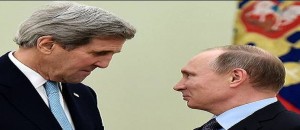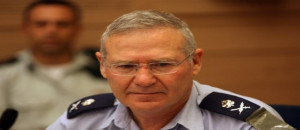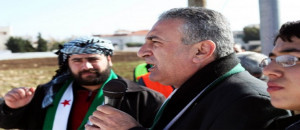An estimated 52 people were killed in attacks across Iraq Thursday, including a bombing at a second-hand motorcycle market in Baghdad’s Sadr City. A motorcycle parked at the market was rigged with explosives and detonated Thursday afternoon, killing 31 people and injuring 51 others. Additionally, bombings on two minibuses in mainly Shiite areas of the capital killed up to nine people and a car bomb hit a checkpoint in the Sunni district of Mushaada in northern Baghdad killing three soldiers. In Haditha, in western Anbar province, a suicide bomber drove an explosives-laden car into the guesthouse of prominent pro-government tribal leader Sheikh Saeed Fleih al-Osman, killing Osman and six of his militiamen. Osman was a member of Haditha’s municipal council and the leader of the town’s anti-al Qaeda “Awakening Councils” militia forces, or Sahwa.
Syria
Fighters from the Islamic State of Iraq and the Levant (ISIL) have begun withdrawing from areas of northern Syria. The movement of forces has come four days after al Qaeda-linked al-Nusra Front issued an ultimatum to ISIL to agree to mediation over infighting in Syria, or face expulsion from the country. ISIL fighters have reportedly left the town of Azaz, three miles from the Turkish border, which it had seized from rival opposition groups about five months ago. According to Rami Abdulrahman, director of the British-based Syrian Observatory for Human Rights, ISIL “is heading to areas that neighbor Raqqa province where it has its main stronghold in the city of Raqqa.” The Observatory says 3,300 people have been killed in clashes between rebel factions since the beginning of 2014. Meanwhile, the United States’ annual “Country Reports on Human Rights Practices” has condemned the Syrian government calling the country’s civil war a tragedy that “stands apart in its scope and human cost.” The report highlighted a chemical weapons attack it says killed 1,429 people as “one of the many horrors” of the war. In a report to the United Nations and Organization for the Prohibition of Chemical Weapons joint mission, the Syrian government said two attempted attacks on chemical weapons convoys on January 27 and ongoing military activities contributed to its failure to meet a February 5 deadline for the transport of all of its chemical arsenal out of the country. Syria has proposed a new timetable to remove its chemical weapons by the end of April.
Headlines
Media organizations across the world have staged protests joining Al Jazeera for a “global day of action” demanding the release of journalists imprisoned in Egypt.
Clashes between the Yemeni army and Houthi rebels over government offices in Jawf province’s capital of Hizm killed at least 24 people Friday.
Egyptian interim President Adly Mansour has reshuffled the Supreme Council of the Armed Forces, which will for the first time be headed by the defense minister rather than the president.
Arguments and Analysis
‘The Arab Exception’ (Ahmed Benchemsi, Politico)
“In reality, the constitutional reform that garnered so much praise in Washington-Secretary of State Hillary Clinton even called it a ‘model’ for other countries in the region — confirmed and even strengthened autocracy in Morocco. The king tops the three branches of government more indisputably than ever, appointing ministers and magistrates, issuing laws in the form of royal decrees, commanding army and security services, and presiding over religious affairs. Which is pretty much the definition of an absolute ruler, with almost no checks and balances on his political powers — not to mention the economy, over which Mohammed VI reigns through his privately owned super-holding that at times has generated as much as 8 percent of the country’s GDP. Meanwhile, police abuses remain frequent and unpunished, and freedom of the press is severely constrained.
Not only does the United States put up with these abuses, but it has embraced Morocco tighter since 2011, with President Obama inviting King Mohammed to Washington in November for more pats on the back. After the visit, the White House issued a statement commending ‘the action and the leadership of His Majesty the King in deepening democracy.’ The flattery was consistent with a five-year $697.5 million U.S. economic aid package to Morocco that ended this past September — on top of the annual $30 million or so it already receives in U.S. foreign assistance — subject to the condition that the kingdom favors ‘just and democratic governance,’ as the aid program officially stipulates.”
-Mary Casey & Cortni Kerr





